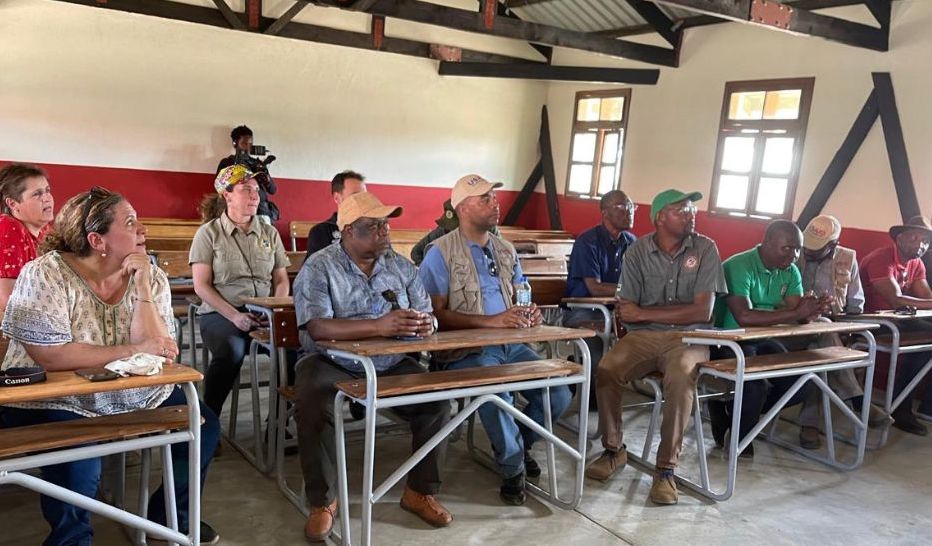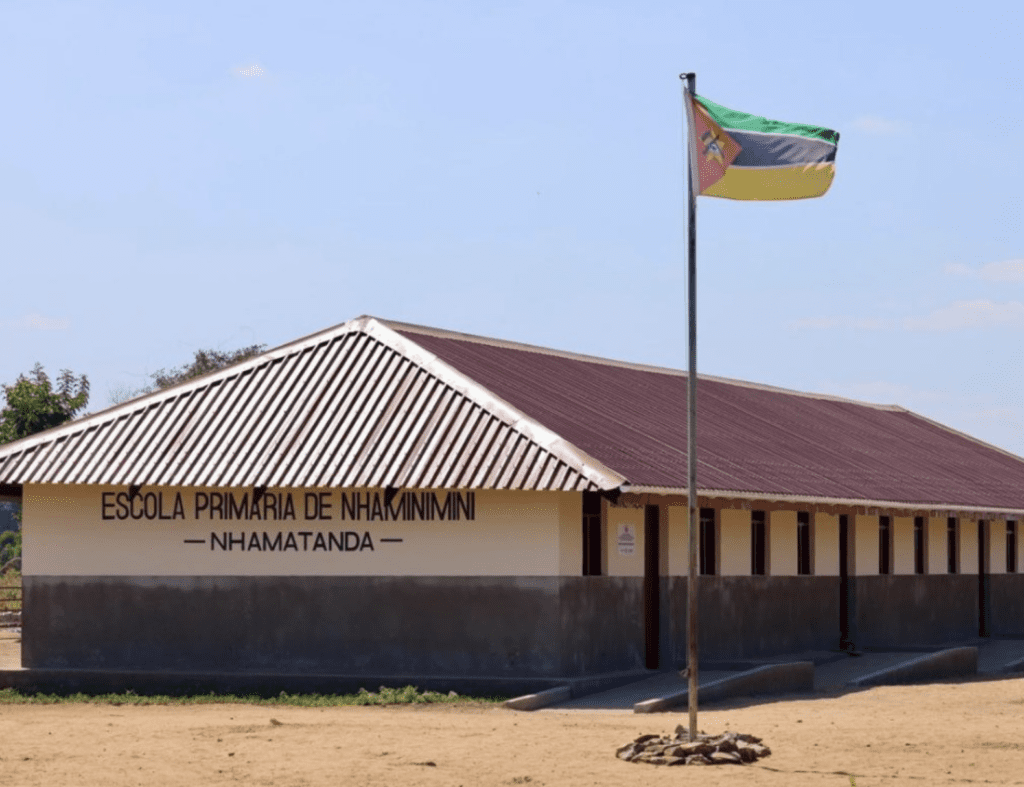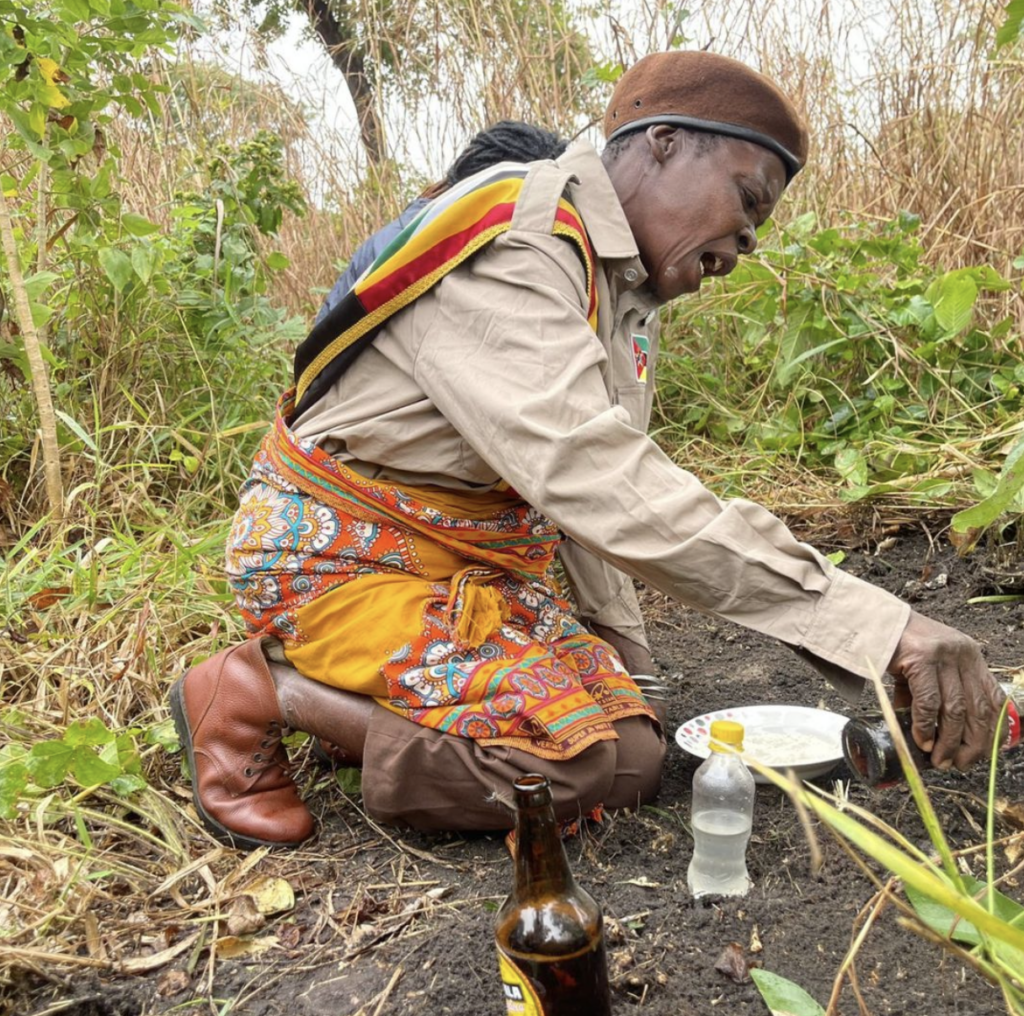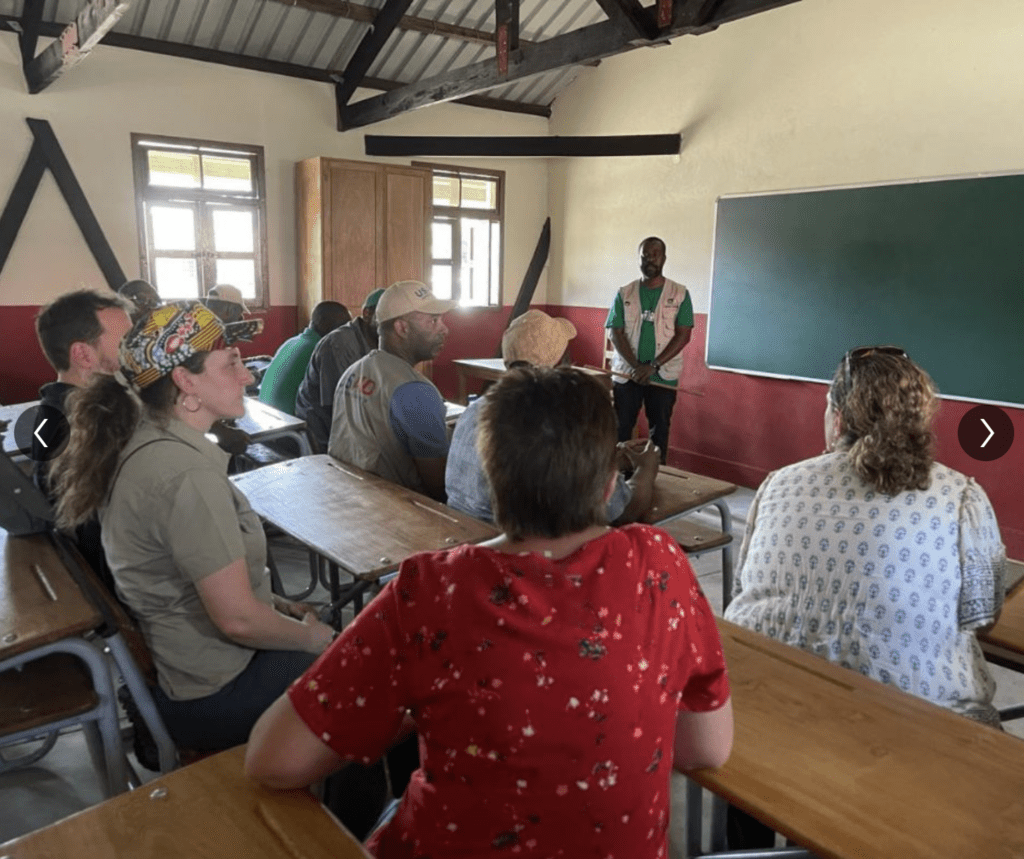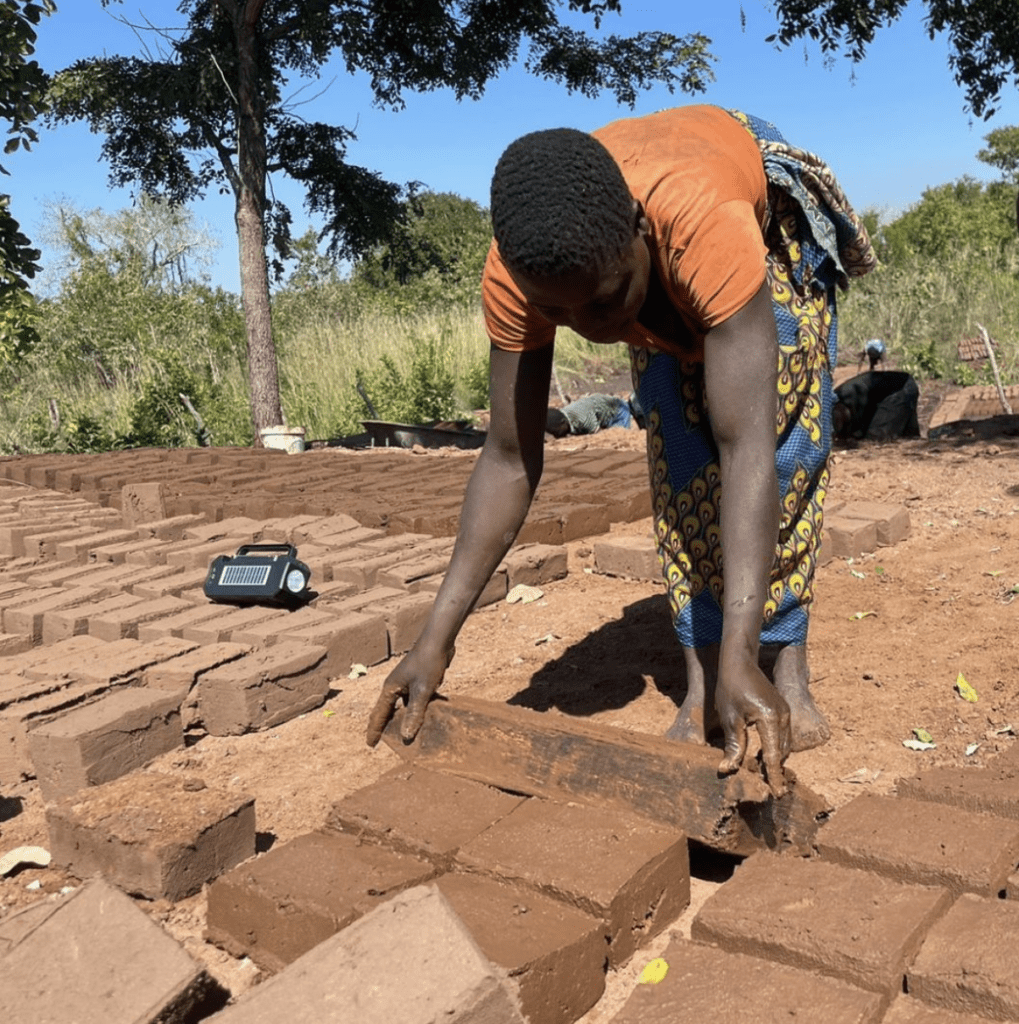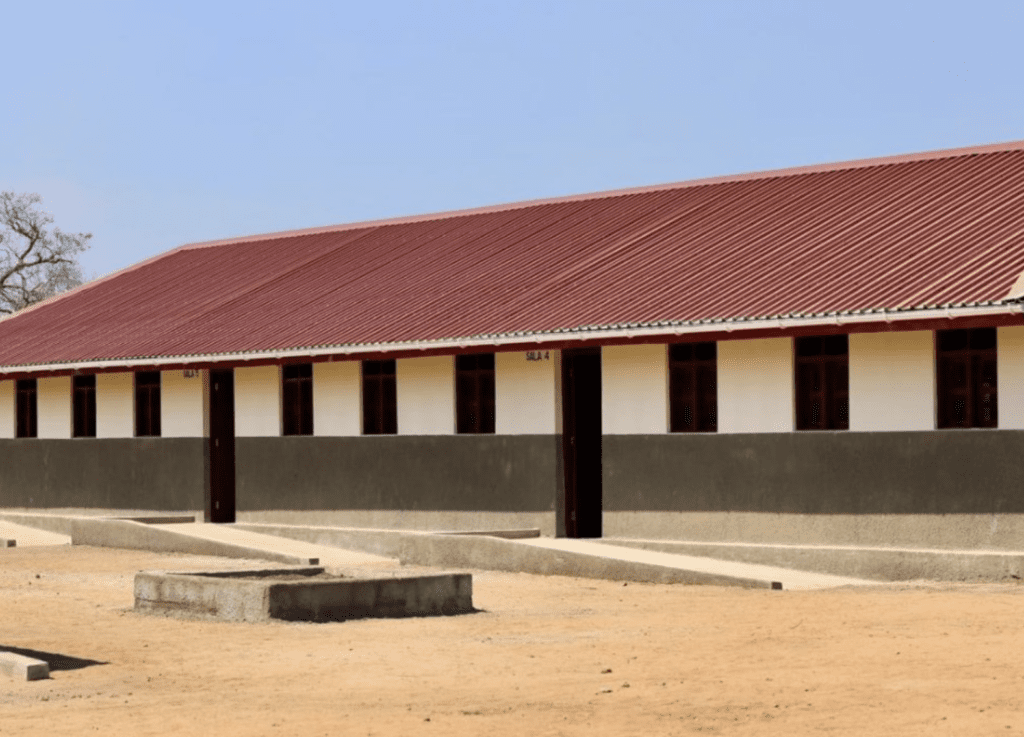Article by Thais Glowacki; Top photo – representatives of the NGO partners involved in building the schools listen to a project update. Photo courtesy, UN Habitat
Three new resilient schools outside of Gorongosa National Park are expanding educational resources for 1,500 students and teachers and offering greater safety for people living in Gorongosa, Nhamatanda, and Maringue districts.
The schools—EPC Nhaminimini (Nhamatanda), EPC Nhago (Maringue), and EPC Muaca (Gorongosa)—each feature six classrooms, administrative offices, separate latrines for boys and girls, two houses for teachers, and water wells.
In addition to serving as schools, these buildings are equipped to act as community shelters during cyclones and other extreme events, further supporting the safety and resilience of local families.
Each facility, part of the larger Resilient Infrastructure project, offers students a more stable environment for learning in safer, more secure classrooms and improving overall education outcomes for the communities just outside Gorongosa National Park.
Making sure local workers are trained in the construction techniques and facility maintenance is a big part of the project and considered crucial for the future of each school. Using a gender-inclusive approach, women trained as technicians are monitoring the classroom construction and documenting their professional experiences and challenges they face on the job. The women will share what they learn during a session with project partners.
Project partners and provincial and district education officials toured the project in early October for a technical delivery inspection, confirming the completion of the schools, which are the first of 26 planned for the area.
Led by the Gorongosa Restoration Project with funding from USAID Mocambique and technical support from UN-HABITAT Mocambique, Oikos – Cooperation and Development, AVSI and two Mozambican government agencies—District Service for Education, Youth and Technology (SDEJT), and District Planning and Infrastructure Service (SDPI)—to make sure the schools meet local needs.
